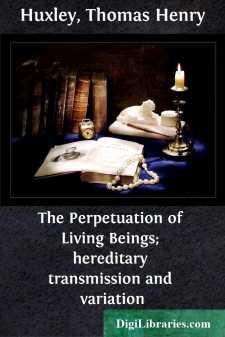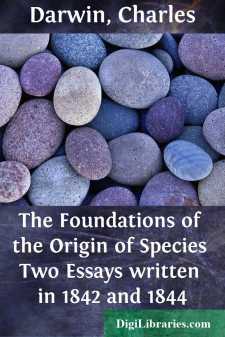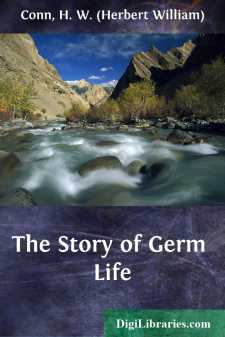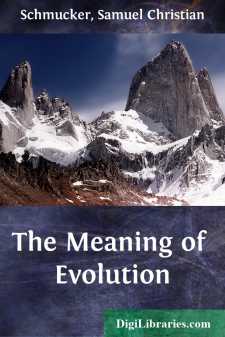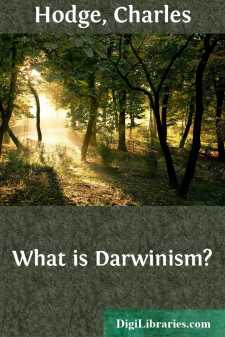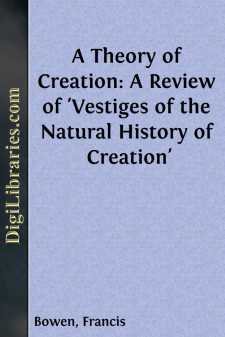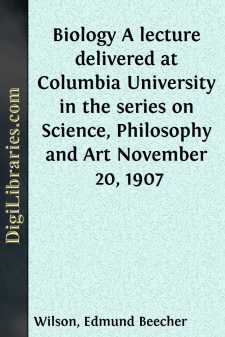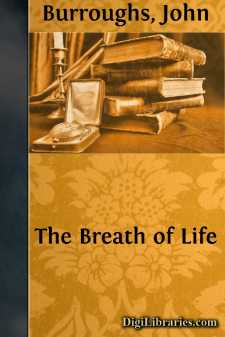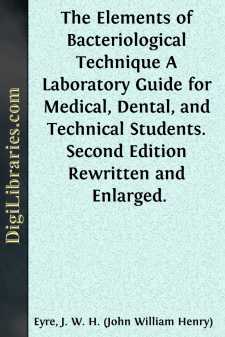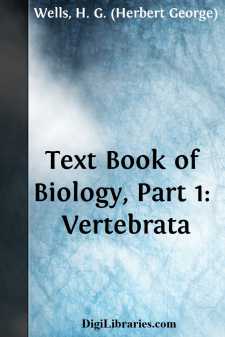Science
- Astronomy 18
- Biology
- Chemistry 13
- Electricity 1
- General 38
- History 6
- Light 1
- Paleontology 2
- Philosophy & Social Aspects 1
- Physics 3
- Relativity 2
- Study & Teaching 1
- Waves & Wave Mechanics 1
Biology Books
Sort by:
The inquiry which we undertook, at our last meeting, into the state of our knowledge of the causes of the phenomena of organic nature,—of the past and of the present,—resolved itself into two subsidiary inquiries: the first was, whether we know anything, either historically or experimentally, of the mode of origin of living beings; the second subsidiary inquiry was, whether, granting the origin, we...
more...
by:
Charles Darwin
INTRODUCTION We know from the contents of Charles Darwin’s Note Book of 1837 that he was at that time a convinced Evolutionist. Nor can there be any doubt that, when he started on board the Beagle, such opinions as he had were on the side of immutability. When therefore did the current of his thoughts begin to set in the direction of Evolution? We have first to consider the factors that made for such...
more...
CHAPTER I. BACTERIA AS PLANTS. During the last fifteen years the subject of bacteriology [Footnote: The term microbe is simply a word which has been coined to include all of the microscopic plants commonly included under the terms bacteria and yeasts.] has developed with a marvellous rapidity. At the beginning of the ninth decade of the century bacteria were scarcely heard of outside of scientific...
more...
A FOREWORD Before my window lies an enchanting landscape. It embraces a stretch of open rolling country, beautiful as the eye could wish to rest upon. The sun with its slanting rays is not giving it heat enough in these winter months to make it blossom in its radiant beauty, but the mind goes easily back through the few brown months to the time when the field not far away was waving with its rich...
more...
by:
Charles Hodge
WHAT IS DARWINISM? This is a question which needs an answer. Great confusion and diversity of opinion prevail as to the real views of the man whose writings have agitated the whole world, scientific and religious. If a man says he is a Darwinian, many understand him to avow himself virtually an atheist; while another understands him as saying that he adopts some harmless form of the doctrine of...
more...
by:
Francis Bowen
THEORY OF CREATION. Vestiges of the Natural History of Creation. New York: Wiley & Putnam. 1845. 12mo. pp. 291. This is one of the most striking and ingenious scientific romances that we have ever read. The writer of it is a bold man; he has undertaken to give a hypothetical history of creation, beginning, as the title-pages say, at the earliest period, and coming down to the present day. It is not...
more...
BIOLOGY I must at the outset remark that among the many sciences that are occupied with the study of the living world there is no one that may properly lay exclusive claim to the name of Biology. The word does not, in fact, denote any particular science but is a generic term applied to a large group of biological sciences all of which alike are concerned with the phenomena of life. To present in a...
more...
by:
John Burroughs
I I When for the third or fourth time during the spring or summer I take my hoe and go out and cut off the heads of the lusty burdocks that send out their broad leaves along the edge of my garden or lawn, I often ask myself, "What is this thing that is so hard to scotch here in the grass?" I decapitate it time after time and yet it forthwith gets itself another head. We call it burdock, but...
more...
I. LABORATORY REGULATIONS. The following regulations are laid down for observance in the Bacteriological Laboratories under the direction of the author. Similar regulations should be enforced in all laboratories where pathogenic bacteria are studied. Guy's Hospital. BACTERIOLOGICAL DEPARTMENT. HANDLING OF INFECTIVE MATERIALS. The following Regulations have been drawn up in the interest of those...
more...
In the year 1884 I was invited to give tuition by correspondence, in Biology. Although disposed at the time to ridicule the idea of imparting instruction in natural science by letter, I gladly accepted the opportunity thus afforded me of ascertaining for myself what could and could not be accomplished in that direction. Anyone familiar with the scope of biological enquiry, and the methods of biological...
more...


